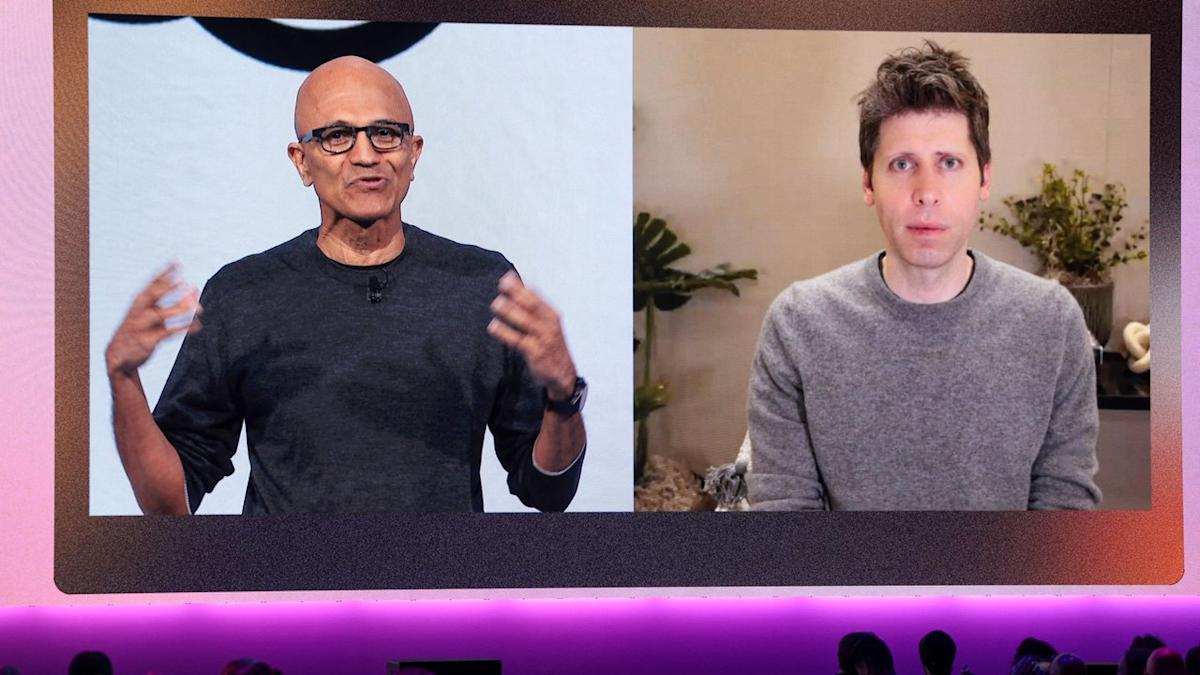OpenAI gets Microsoft OK for restructure, IPO plans
Microsoft and OpenAI said Thursday that they have signed a non-binding agreement that could allow the artificial intelligence startup to restructure and eventually go public, potentially resolving complications in one of the tech industry’s most high-profile partnerships.
The companies announced a memorandum of understanding for “the next phase of our partnership” and said they are working to finalize contractual terms in a definitive agreement. Financial details were not disclosed.
“Together, we remain focused on delivering the best AI tools for everyone, grounded in our shared commitment to safety,” the companies said in a joint statement.
The deal marks progress in OpenAI’s efforts to convert from its current nonprofit structure to a conventional for-profit company, a change the ChatGPT maker says is necessary to raise capital and compete in the rapidly evolving AI market. OpenAI is currently valued at $500 billion in private markets .
Microsoft has invested at least $13 billion in OpenAI since 2019 and shares revenue from ChatGPT and OpenAI’s other tools. But the partnership has grown more complex as both companies have expanded their AI ambitions.
Microsoft now lists OpenAI as a competitor and has been developing its own AI models, while OpenAI has signed major cloud computing deals with Oracle and Google to reduce its dependence on Microsoft’s infrastructure.
Under the restructuring plan, OpenAI’s nonprofit parent company will continue to hold authority over the for-profit business while receiving an equity stake worth more than $100 billion, according to a memo from OpenAI board chairman Bret Taylor.
The conversion faces regulatory hurdles. Attorneys general in California and Delaware have opened investigations into OpenAI’s restructuring plans. Elon Musk and his AI company xAI have also sued OpenAI to stop the restructuring, claiming the company abandoned its original nonprofit purpose.
For Microsoft, the agreement ensures continued access to OpenAI’s technology even if the startup achieves what it calls artificial general intelligence, or AGI, which refers to humanlike AI capabilities that would have terminated their current partnership under existing terms. Under their previous contract, Microsoft would lose access to OpenAI’s future models once AGI was achieved.
The companies did not disclose how much of OpenAI Microsoft would own after the restructuring or whether Microsoft would retain exclusive access to OpenAI’s latest models.
OpenAI hopes to complete its conversion to a for-profit structure by the end of the year. The company risks losing billions in funding if it misses that timeline. The restructuring would also make it easier for the company to raise additional capital from public markets and institutional investors as it competes with rivals including Google’s DeepMind, Anthropic, and others racing to develop more advanced AI systems.



Leave a Comment
Your email address will not be published. Required fields are marked *